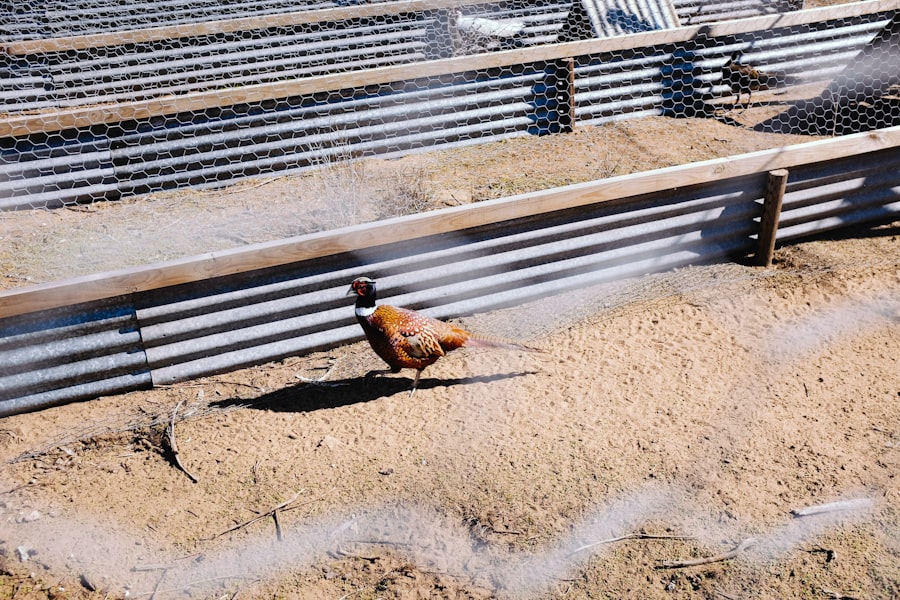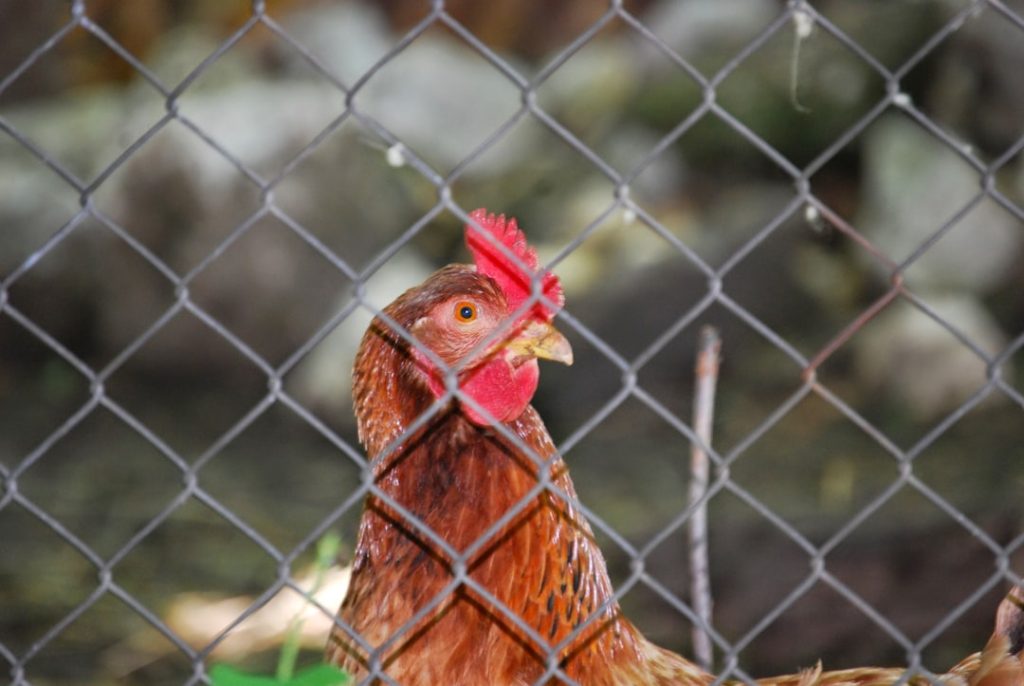Chickens exhibit natural curiosity and opportunistic behavior, frequently seeking out areas that provide food, water, and shelter. They are easily startled and may display skittish reactions to unfamiliar objects or sounds. Understanding these inherent traits is essential for effectively deterring chickens from undesired locations.
By recognizing their natural instincts, one can develop more effective strategies to keep chickens away from specific areas. As social animals, chickens tend to follow the lead of dominant flock members. When one chicken discovers a new food source or shelter, the rest of the flock is likely to follow suit.
Chickens also demonstrate a strong sense of routine, often returning to the same locations repeatedly if they have found reliable sources of sustenance or water. Comprehending these behavioral patterns allows for the anticipation of chicken movements and the implementation of proactive measures to discourage their presence in unwanted areas.
Table of Contents
Key Takeaways
- Chickens are naturally curious and will explore their surroundings, so understanding their behavior is key to deterring them from unwanted areas.
- Implementing physical barriers such as fences and netting can effectively keep chickens out of specific areas.
- Using natural deterrents like predator urine or strong scents can help keep chickens away from certain areas.
- Removing attractive food sources such as fallen fruits or grains can discourage chickens from frequenting specific areas.
- Creating distractions with decoy food or shiny objects can divert chickens’ attention away from unwanted areas.
Implementing Physical Barriers
Protecting Gardens and Plants
For example, if you want to keep chickens out of your garden, you can install a fence around the perimeter to prevent them from entering. Using netting or wire mesh over plants can also help protect them from being damaged by pecking chickens.
Scare Devices as a Deterrent
Another physical barrier that can be effective in deterring chickens is the use of scare devices such as motion-activated sprinklers or noise makers. These devices startle the chickens when they approach, causing them to associate the area with a negative experience and discouraging them from returning.
Creating a Clear Boundary
By implementing physical barriers, you can create a clear boundary that prevents chickens from accessing specific areas, ultimately deterring them from causing damage or disruption.
Using Natural Deterrents

In addition to physical barriers, natural deterrents can also be effective in keeping chickens away from unwanted areas. One common natural deterrent is the use of predator decoys such as fake owls or hawks. These decoys mimic natural predators and can help deter chickens by triggering their instinctual fear response.
Additionally, planting certain herbs or flowers with strong scents, such as lavender or marigolds, can also help repel chickens due to their strong odor. Another natural deterrent is the use of reflective surfaces, such as aluminum foil strips or shiny objects, which can create a visual disturbance for chickens and make them feel uncomfortable in the area. By using natural deterrents, you can leverage the chickens’ natural instincts and aversions to certain stimuli to keep them away from specific areas without causing harm to the animals.
Removing Attractive Food Sources
Chickens are drawn to areas where they can find food, so one effective way to deter them is by removing attractive food sources. This can include securing garbage cans, compost bins, and pet food containers to prevent chickens from accessing these food sources. Additionally, cleaning up fallen fruits or vegetables in your garden can help reduce the appeal of the area to chickens.
Another strategy is to limit access to bird feeders or other sources of birdseed, as this can attract chickens as well as other wildlife. By removing attractive food sources, you can reduce the incentive for chickens to frequent specific areas and encourage them to seek food elsewhere.
Creating Distractions
Another effective strategy for deterring chickens is by creating distractions that draw their attention away from unwanted areas. This can include providing alternative sources of food or entertainment in a different location to redirect the chickens’ focus. For example, setting up a designated feeding area with scratch grains or treats away from your garden can help keep chickens occupied and less likely to venture into off-limits spaces.
Additionally, providing environmental enrichment such as hanging toys or perches in their coop or run can help keep chickens mentally stimulated and less inclined to explore areas where they are not welcome. By creating distractions, you can redirect the chickens’ attention and energy in a positive way, ultimately deterring them from causing damage or disruption in unwanted areas.
Seeking Professional Help

Expert Insights and Guidance
Consulting with a professional animal behaviorist or poultry expert can provide valuable insights and guidance on effective strategies for deterring chickens. They can assess the situation and provide tailored recommendations based on the specific behaviors and tendencies of your flock.
Advanced Deterrent Methods
Professional help may also involve implementing more advanced deterrent methods such as electronic fencing or sound-based repellent devices. These experts can also provide ongoing support and guidance to ensure that the deterrent strategies are effective in the long term.
Access to Specialized Knowledge and Resources
By seeking professional help, you can access specialized knowledge and resources to address the issue of deterring chickens from unwanted areas effectively.
Being Consistent and Persistent
Finally, it’s important to be consistent and persistent in your efforts to deter chickens from specific areas. Chickens are creatures of habit and may take time to change their behavior in response to new deterrent methods. By consistently applying deterrent strategies and being persistent in your efforts, you can reinforce the message that certain areas are off-limits for the chickens.
Consistency also involves regularly assessing and adjusting your deterrent methods based on the chickens’ behavior and any changes in the environment. By staying vigilant and proactive, you can maintain a clear boundary that discourages chickens from accessing unwanted areas over time. Ultimately, being consistent and persistent in your efforts is key to successfully deterring chickens and protecting your property from damage or disruption.
If you’re looking for ways to keep chickens out of your yard, you may also be interested in learning about the mating season for turkeys. Understanding the behavior of different poultry can help you better manage their presence in your yard. Check out this article on mating season for turkeys to gain more insight into the habits of these birds.
FAQs
What are some effective ways to keep chickens out of your yard?
Some effective ways to keep chickens out of your yard include installing a fence around your property, using chicken wire or netting to cover vulnerable areas, and using motion-activated sprinklers to deter them.
Are there any natural deterrents to keep chickens out of your yard?
Yes, there are natural deterrents to keep chickens out of your yard, such as planting prickly bushes or shrubs, using citrus peels or essential oils with strong scents, and using predator decoys like fake owls or hawks.
What should I do if I find chickens in my yard?
If you find chickens in your yard, you can try gently shooing them away, using noise or motion to scare them off, or contacting the owner of the chickens to address the issue.
Are there any legal implications of keeping chickens out of my yard?
The legal implications of keeping chickens out of your yard can vary depending on your location and local ordinances. It’s important to check with your local authorities to understand any regulations or laws regarding keeping chickens out of your yard.
Meet Walter, the feathered-friend fanatic of Florida! Nestled in the sunshine state, Walter struts through life with his feathered companions, clucking his way to happiness. With a coop that’s fancier than a five-star hotel, he’s the Don Juan of the chicken world. When he’s not teaching his hens to do the cha-cha, you’ll find him in a heated debate with his prized rooster, Sir Clucks-a-Lot. Walter’s poultry passion is no yolk; he’s the sunny-side-up guy you never knew you needed in your flock of friends!







